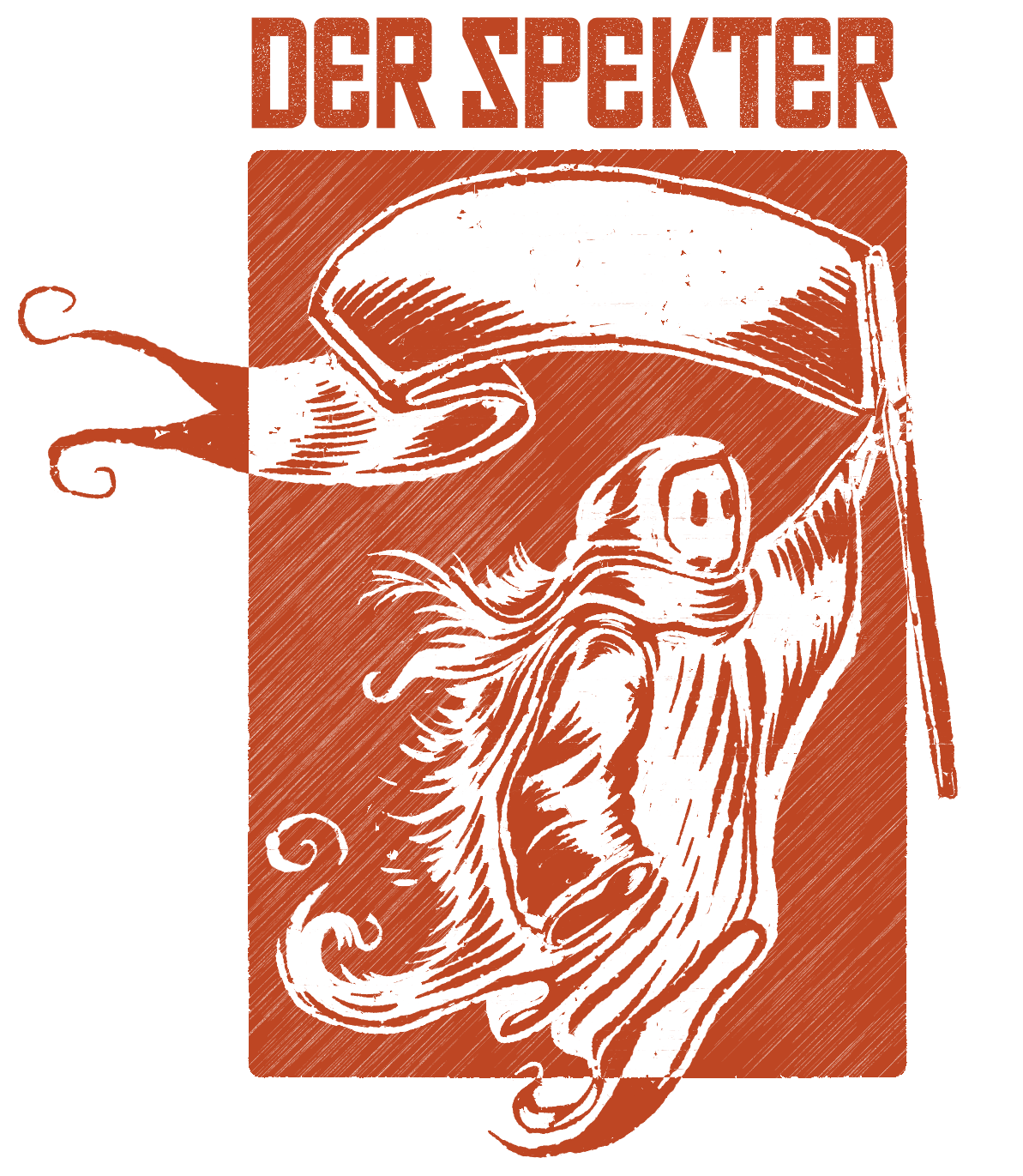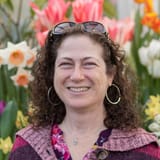Doikayt (Aleph in the Asphalt)

MIR ZAYNEN DO
we are here
is a declaration of survival
a demand to exist
out loud in color
but also
and also
to be here
not somewhere else
MIR ZAYNEN DO
we are here
means not having to leave
not being confined
in a ghetto
of your creation
or of ours
not being confined
to one land
not needing a haven
being free wherever we are
MIR ZAYNEN DO
we are here
means seeing the aleph
formed by cracks in the asphalt
means going back to the beginning
right here where we already are
and seeing ourselves
in the foundation
of the here
means standing on that foundation
marching on it
running free not away
‘SVET A POYK TON UNDZER TROT
MIR ZAYNEN DO
our footsteps will be a drum beat of
we are here
means here on that foundation
we stand up
for everyone
with everyone
means we are
the aleph in the asphalt
the starting letter
the primal vowel
the ah the oh the silent spaceholder
for other sounds
MIR ZAYNEN DO
we are here
means right here
yes even here in the cracks
we begin and begin
and begin again
begin is an anagram of being
yes, Reb Leonard, the cracks
are how the light gets in
but also
and also
where it shines out
MIR ZAYNEN DO
cracked aleph in the asphalt
means we are here
to let the light in
to let the light out
with our wise cracks
and louder noises
‘SVET A POYK TON UNDZER TROT
MIR ZAYNEN DO
means we are here
for good
Poet and educator Anita Gallers is the granddaughter of Bundist Holocaust survivors and the great-granddaughter of writer, educator, and Bundist/Labor leader Jacob Pat.
Her English translation of his last book, "Khanke," about family members in the Bialystok Ghetto resistance, is forthcoming in 2025 from Kinder-Loshn in a bilingual edition. This non-fiction account of the author's exceptionally brave teenage niece, Khanke, and her mother (his sister), Sheyne, was originally aimed at middle-grade readers but is relevant for all readers; now more than ever, it is important to share stories of resistance to fascism, anti-Semitism, and all forms of oppression, and in particular to highlight the important role of women in resistance movements. This book is also deeply personal for Anita, who is Khanke's namesake.
Anita lives in Western Massachusetts with her partner and two cats, works as an academic advisor at UMass Amherst, and is on the Editorial Board of Silkworm, the annual anthology of The Florence Poets Society.





